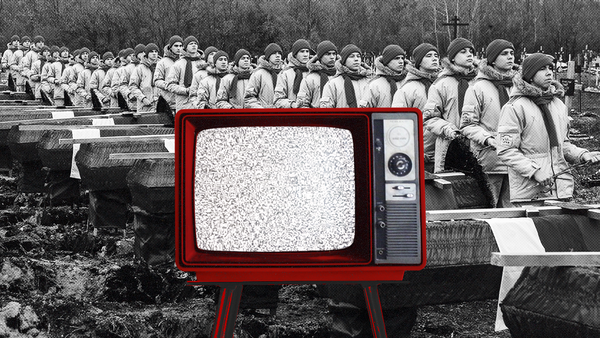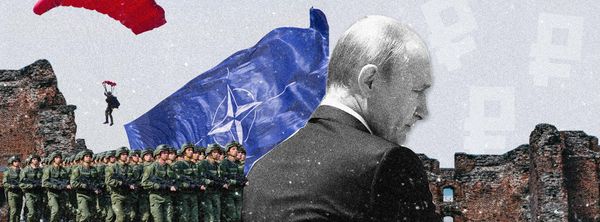The Berlin Leaders' Statement on Ukraine (December 15, 2025) - my thoughts on its strengths and weaknesses.
Anton Gerashchenko.
◼️What is this document, and why is it called a "step forward":
The Berlin Leaders' Statement on Ukraine is a joint political statement by a group of European leaders and the EU leadership against the backdrop of active negotiations to end the war.
Its main difference from previous "vague guarantees" is that it is not limited to the words "we support Ukraine," but attempts to describe how security guarantees should work: a strong Ukrainian army + European participation + the role of the US in monitoring the ceasefire. This is definitely a step forward, but it will only be effective when clear details emerge, including who does what, for how much money, and according to what rules.
◼️What exactly is being proposed (briefly):
The Statement says that the issue of territories should not be resolved "in exchange for a pause" - robust security guarantees must come first. Then, the following commitments are described: support for Ukraine's defense with a target of approximately 800,000 armed forces in peacetime; creation of a European multinational force within the Coalition of the Willing with US support - to help Ukraine restore its military capabilities and secure our skies and seas; a US-led mechanism for monitoring⤵️
and verifying the ceasefire; and a formula for a "legally binding" response to a renewed attack (but with the proviso that each country acts according to its own internal rules).
◼️Strengths:
The strongest aspect here is that the guarantees are presented as a package that should work together, rather than as a set of well-meaning words. The first pillar is Ukraine itself: a large, well-trained army as a "first shield" that makes another attack less advantageous.
The second is European participation: an additional level of support after the ceasefire. The third is the US as an "anchor": monitoring compliance with the ceasefire increases the chance of quickly identifying violations and responding to them. This three-layered program is an attempt to move closer to the logic of "strong guarantees" without formal NATO membership.
The second strength is the order of actions: security first, then discussions about territories.
This is important as a signal that territories should not become a "down payment" for a truce.
Third, the statement attempts to link security to a broader Ukrainian-European track: recovery, discussion of frozen assets, and the prospect of EU membership.
◼️Weaknesses and risks:
The main problem is a lack of specifics about the European multinational force.
There are general functions, but almost no answers to key questions: how many people, where exactly they will be, who will command them, what rules for the use of force will apply, and what to do in case of provocations or escalation. Without clear rules, this could become a "symbolic presence" that does not deter.
The second weakness is the formula "legally binding, subject to national procedures.
" In practice, this means that decisions can be made differently and at different speeds in different countries. And the enemy can count on the allies' response being slow or uneven.
The third risk is dependence on the US. The role of the US in verifying and supporting the coalition force increases reliability, but makes the whole program vulnerable to changes in Washington's policy and the US's willingness to adhere to this for a long time.
The fourth point concerns resources and capabilities.
Even if a political decision is made, such a force requires long-term funding and expensive capabilities (air defense, aviation, logistics, command and control, intelligence).
◼️Conclusion: it's a step forward, but not a ready-made solution.
This is a step forward in creating the conditions for lasting peace, because for the first time, "guarantees" are described as a system rather than general words.
But it is not yet a ready-made plan, because it lacks details: clear rules, real contributions from countries, the role of the US "in numbers and commitments," and understandable legal procedures.
This plan can also be called a step forward for European security because the document records a shift toward European leadership in "strong" security: Europe is taking on the role of organizer of the coalition and multinational force, while the US is defined as a key "anchor" in monitoring and support.
This is a change in logic - from "ask Washington" to "Europe acts, Washington reinforces."The statement was adopted by the following leaders and EU institutional heads: António Costa (President of the European Council), Ursula von der Leyen (President of the European Commission), Mette Frederiksen (Prime Minister of Denmark), Alexander Stubb (President of Finland), Emmanuel Macron (President of France), Friedrich Merz (Chancellor of Germany), Giorgia Meloni (Prime Minister of Italy),⤵️
Dick Schoof (Prime Minister of the Netherlands), Jonas Gahr Støre (Prime Minister of Norway), Donald Tusk (Prime Minister of Poland), Ulf Kristersson (Prime Minister of Sweden), and Keir Starmer (Prime Minister of the United Kingdom).
https://www.consilium.europa.eu/en/press/press-releases/2025/12/15/leaders-statement-on-ukraine/






